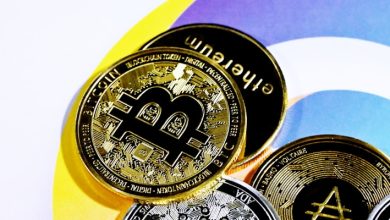The Role of Oracles in Enhancing Blockchain Functionality

- The Importance of Oracles in Blockchain Technology
- How Oracles Bridge the Gap Between Blockchain and Real-World Data
- Enhancing Smart Contracts with the Help of Oracles
- The Role of Oracles in Ensuring Data Accuracy on the Blockchain
- Exploring the Potential of Oracles in Decentralized Finance (DeFi)
- Challenges and Opportunities in Integrating Oracles with Blockchain Technology
The Importance of Oracles in Blockchain Technology
Oracles play a crucial role in the functionality of blockchain technology by acting as a bridge between the blockchain and external sources of information. They provide smart contracts with the data they need to execute transactions and trigger events based on real-world conditions. Without oracles, blockchains would be limited to only processing transactions based on internal data, severely restricting their potential use cases.
By enabling smart contracts to interact with external data, oracles unlock a wide range of possibilities for blockchain technology. This includes applications in decentralized finance (DeFi), supply chain management, insurance, gaming, and many other industries. Oracles help to bring real-world data onto the blockchain, making it more versatile and adaptable to a variety of use cases.
One of the key advantages of oracles is their ability to provide tamper-proof data to smart contracts. This helps to ensure the integrity and security of transactions on the blockchain, reducing the risk of fraud or manipulation. Oracles can also help to automate processes that rely on external data, streamlining operations and improving efficiency.
Overall, the importance of oracles in blockchain technology cannot be overstated. They are essential for expanding the functionality of blockchains and enabling them to interact with the outside world in a secure and reliable manner. As blockchain technology continues to evolve and find new applications, the role of oracles will only become more critical in harnessing the full potential of this transformative technology.
How Oracles Bridge the Gap Between Blockchain and Real-World Data
Oracles play a crucial role in bridging the gap between blockchain technology and real-world data. They act as the link that connects smart contracts on the blockchain with external sources of information, such as APIs, IoT devices, and other data feeds. By providing a means for blockchain platforms to interact with off-chain data, oracles enable decentralized applications to access and use information from the real world.
Through oracles, blockchain networks can obtain information on asset prices, weather conditions, sports scores, and more, which can then be used to trigger smart contract executions. This functionality expands the capabilities of blockchain technology beyond its native capabilities, allowing for a wide range of applications in various industries. For example, oracles can be used to facilitate automated trading based on real-time market data, enable insurance smart contracts that pay out based on weather conditions, or even power decentralized identity verification systems.
By leveraging oracles, blockchain platforms can tap into the vast amounts of data available in the real world, opening up new possibilities for innovation and efficiency. However, it is essential to ensure that the data provided by oracles is accurate and reliable, as erroneous information can have significant consequences for smart contract executions. As such, the development of secure and trustworthy oracle solutions is crucial for the continued growth and adoption of blockchain technology across industries.
Enhancing Smart Contracts with the Help of Oracles
Oracles play a crucial role in enhancing the functionality of blockchain technology, particularly in the context of smart contracts. By connecting smart contracts with real-world data and events, oracles enable smart contracts to interact with external sources of information. This capability opens up a wide range of possibilities for smart contracts, allowing them to execute based on real-time data and respond to changing conditions.
Oracles act as bridges between blockchains and the outside world, providing smart contracts with access to information that resides beyond the confines of the blockchain. This external data can include anything from market prices and weather conditions to sports scores and election results. By leveraging oracles, smart contracts can be designed to automatically trigger certain actions based on predefined conditions, without the need for manual intervention.
Furthermore, oracles help to address the issue of trust in smart contracts by verifying the accuracy and authenticity of external data before it is used to trigger contract execution. This verification process helps to ensure the integrity of the smart contract ecosystem and minimizes the risk of fraudulent or erroneous data influencing contract outcomes. In this way, oracles enhance the reliability and security of smart contracts, making them more robust and trustworthy.
The Role of Oracles in Ensuring Data Accuracy on the Blockchain
Oracles play a crucial role in ensuring the accuracy of data on the blockchain. By acting as intermediaries between off-chain sources and smart contracts, oracles help verify and validate information before it is recorded on the blockchain. This verification process helps prevent inaccuracies and errors in the data, which is essential for maintaining the integrity and reliability of the blockchain.
Oracles can access real-world data from various sources, such as APIs, sensors, and IoT devices, and feed this information into smart contracts. This data can include anything from financial market prices to weather conditions, and by using oracles, blockchain networks can securely integrate this external data without compromising the trustlessness and decentralization of the system.
One of the key challenges in using oracles is ensuring their reliability and security. Malicious actors could potentially manipulate the data provided by oracles, leading to inaccurate information being recorded on the blockchain. To mitigate this risk, various mechanisms such as data aggregation, consensus algorithms, and reputation systems can be implemented to verify the accuracy of the data from multiple oracles.
Overall, oracles play a critical role in enhancing the functionality of the blockchain by enabling the integration of real-world data into smart contracts. By ensuring the accuracy and reliability of this data, oracles help blockchain networks unlock new use cases and applications that require access to external information. As the adoption of blockchain technology continues to grow, the role of oracles in ensuring data accuracy will become increasingly important in driving innovation and expanding the capabilities of decentralized systems.
Exploring the Potential of Oracles in Decentralized Finance (DeFi)
Exploring the potential of oracles in decentralized finance (DeFi) is crucial in understanding how these third-party services play a significant role in enhancing blockchain functionality. Oracles act as a bridge between off-chain data and on-chain smart contracts, providing reliable and accurate information to decentralized applications.
By leveraging oracles, DeFi platforms can access real-world data such as price feeds, weather conditions, and sports scores, enabling the execution of complex financial transactions based on external events. This ability to interact with external data sources opens up a wide range of opportunities for decentralized applications, making them more versatile and adaptable to changing market conditions.
Furthermore, oracles help mitigate the issue of trust in decentralized systems by verifying and validating external data before it is used in smart contracts. This ensures the integrity and security of transactions, reducing the risk of manipulation or fraud. With the increasing popularity of DeFi, the demand for reliable oracles continues to grow, highlighting their importance in the blockchain ecosystem.
Challenges and Opportunities in Integrating Oracles with Blockchain Technology
The integration of oracles with blockchain technology presents both challenges and opportunities for enhancing the functionality of decentralized systems. Oracles act as bridges between off-chain real-world data and on-chain smart contracts, enabling blockchain platforms to interact with external information sources.
One of the main challenges in integrating oracles with blockchain is ensuring the security and reliability of the data feeds. Since oracles are external entities, there is a risk of data manipulation or tampering, which can compromise the integrity of smart contracts. Implementing robust security measures, such as using multiple oracles and cryptographic proofs, can help mitigate these risks.
Another challenge is the scalability of oracle networks, as the demand for real-time data updates can put a strain on blockchain networks. Optimizing the data delivery process and implementing efficient data verification mechanisms can help improve the performance of oracle networks and enhance the overall user experience.
Despite these challenges, integrating oracles with blockchain technology also offers significant opportunities for expanding the use cases of decentralized applications. By enabling smart contracts to access external data, oracles can facilitate a wide range of applications, including decentralized finance, supply chain management, and identity verification.
Furthermore, the integration of oracles can help bridge the gap between blockchain platforms and traditional systems, opening up new possibilities for cross-chain interoperability and data sharing. This can lead to increased collaboration between different blockchain networks and foster innovation in the decentralized ecosystem.



